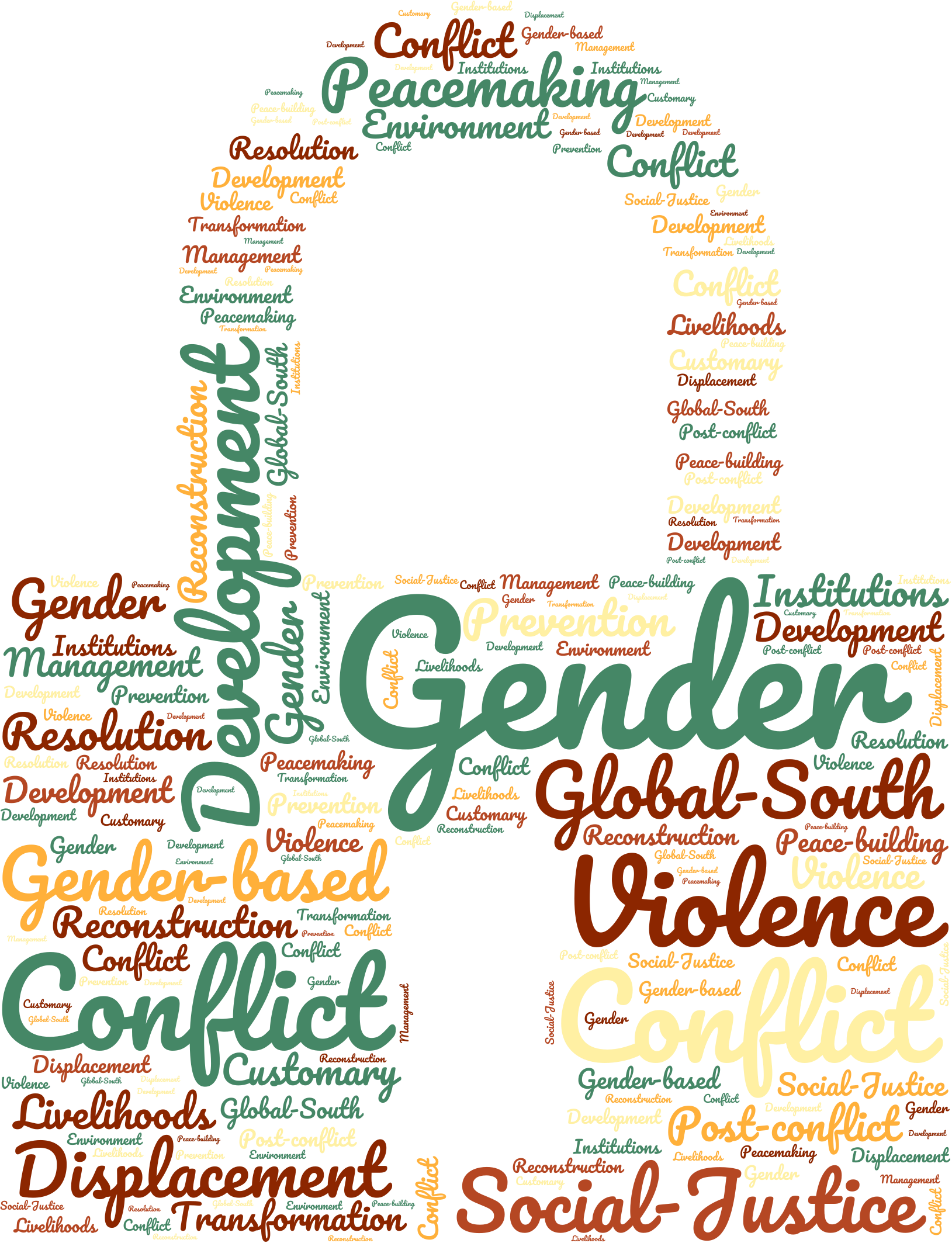Gender, Conflict, and Development in the Global South
This course examines the relationship among gender, conflict and development and introduces theories related to them. Thoughts, approaches, and practices related to conflict transformation are also issues the course addresses.
5 ECTS Credits — Studies start 2 April 2025 — University of Helsinki

Course dates
2 April 2025 – 28 May 2025
Registration period
1 February 2025 – 27 March 2025
Coordinating university
University of Helsinki
Instructors
Credits
5 ECTS
Course dates: 02.04. - 28.05.2025
Registration dates: 01.02. - 27.03.2025
Coordinating university: University of Helsinki Course code on SISU: YMV-K506
Responsible teacher: Gutu Wayessa (if.iknisleh@asseyaw.utug) & Gutema Imana Keno (Haramaya University, Ethiopia
Credits: 5 ECTS
Course offered: 2/3
Course summary:
This course covers concepts and theories related to the connections among gender, conflict, and development, as well as thoughts, approaches, and practices related to gender amelioration, conflict resolution/transformation, and development, in general, and in the Global South, in particular. The central focus of the course is on gender-conflict-development nexus, rather than on a separate treatment of gender, conflict, and development. Students will be introduced to Global South approaches to gender, conflict, and development, as well as their critical analysis.
During the course, students will consider that development is a highly gendered phenomenon that affects men and women differently and, relatedly, how development processes account, or fail to account, for gendered dynamics. Throughout the course, students will critically engage with questions such as the following: How do gender stereotypes influence the way people think about development? How have feminist perspectives contributed to development theories and practices? Why should development processes be attuned to women’s development needs, and how can they do so? How does conflict open up potentially transformative spaces for gender relations, and how can development processes foster, rather than hinder, the achievement of gender equality? Students will gain an understanding of the complex, gendered dimensions of conflict and development as well as evaluate diverse perspectives and policy frameworks that address these complexities.
Learning outcomes:
The general objective of the course is to acquaint students with the knowledge and skills of identifying, describing, and analyzing the nexus between gender, conflict, and development in the contexts of modern and customary approaches to conflict and development.
At the end of the course, students will be able to:
- explain various concepts of gender, conflict, and development,
- Identify various theories and approaches related to the relations among gender, conflict, and development.
- evaluate whether a given conflict analysis or development planning is gender-sensitive or not,
- integrate gender into programming/planning in conflict-affected environments,
- critically engage with the assumptions, approaches, and practices of customary/endogenous institutions in peacemaking and conflict transformation, and
- understand the relationship between gender, conflict, and development.
Learning methods:
- Lectures: Live and recorded video lectures as well as lecture notes
- Discussion: Online discussion among students, based on assigned reading materials and/or as guided by the course teachers
- Self-study of assigned reading materials
- Seminar presentations
Completion methods:
Study material:
- Tenna Dewo. (2013). The concept of Peace in the Oromo Gadaa System: Its mechanism and moral dimensions. African Philosophy in Ethiopia, Ethiopian Philosophical Studies II.
- Asmarom Legesse. (2006). Oromo Democracy: An Indigenous Political System. Trenton: The Red Sea Press.
- Thompson, M. (2006). Women, gender, and conflict: Making the connections. Development in Practice, 16(3-4): 342-353.
- Tsjeard Bouta, Georg Frerks, Ian Bannon, 2005. Gender, Conflict, and Development. World Bank Publications.
- BRIDGE. (1996). 'Conflict and Development' Development and Gender in Brief, issue 3, IDS, Brighton.
- Henni Alava (ed.): Exploring the security-development nexus: perspectives from Nepal, Northern Uganda and 'Sugango'. (E-book)
- Additional journal articles will be identified as weekly reading materials.
Assessment criteria:
Grading scale: 0-5
The learning and performance of students will be evaluated based on their class activities, online discussion, completion of assignments, and written essays, specified as follows:
- Attendance and participation, including online discussion (25%)
- Reflection papers and other assignments (25%)
- Final essay (50%)
Maximum number of students:
Maximum number of students; 40 (20-30 students from UniPID + 10-20 students from the partner in the Global South (Haramaya University, Ethiopia)
Preliminary timetable:
The course consists of 9 weekly sessions held on Wednesdays from 14:00 to 16:00 (Finnish time), starting on 2 April 2025 and continuing until 28 May 2025, according to the following schedule:
| DATE | WEEKDAY | SESSION |
| 02.4.2025 | Wednesday | Session 1 |
| 09.4.2025 | Wednesday | Session 2 |
| 16.4.2025 | Wednesday | Session 3 |
| 23.4.2025 | Wednesday | Session 4 |
| 30.4.2025 | Wednesday | Session 5 |
| 07.5.2025 | Wednesday | Session 6 |
| 14.5.2025 | Wednesday | Session 7 |
| 21.5.2025 | Wednesday | Session 8 |
| 28.5.2025 | Wednesday | Session 9 |
 Email alert: Let us remind you when registration for this course opens. By filling in the information below, you authorize us to email you when the course registration starts.
Email alert: Let us remind you when registration for this course opens. By filling in the information below, you authorize us to email you when the course registration starts.